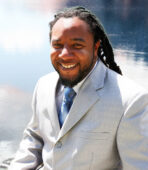
Sleep Disorder therapists in Lutz, Florida FL

Dr. Le’ Isaac Gardner Msc.D. CTHT ORDM
Hypnotherapist, Doctorate in Metaphysical Science, MSc.D. Clinical and Transpersonal Hypnotherapist CTHT
Sleeping is one of the most important things that we do. Let me help you to find that peaceful mind that will allow you to find rest at the proper times.
DR. JOHN KNIGHT PHD ABMPP LMHC
Licensed Mental Health Counselor
Sleep disorder assessment
Dr. Brian M. Berman
Psychologist, Psy.D.
I specialize in cognitive behavioral therapy for insomnia (CBT-I) and Acceptance and Commitment Therapy for insomnia (ACT-I). Both of these evidence-based treatment will help you regain the sleep you deserve.
Jayson L. Mystkowski
Psychologist, Ph.D., ABPP
Courtesy of the Mayo Clinic: “Cognitive Behavioral Therapy for insomnia is a structured program that helps you identify and replace thoughts and behaviors that cause or worsen sleep problems with habits that promote sound sleep. Unlike sleeping pills, CBT-I helps you overcome the underlying causes of your sleep problems. To identify how to best treat your insomnia, your sleep therapist may have you keep a detailed sleep diary for one to two weeks. The cognitive part of CBT-I teaches you to recognize and change beliefs that affect your ability to sleep. This type of therapy can help you control or eliminate negative thoughts and worries that keep you awake. The behavioral part of CBT-I helps you develop good sleep habits and avoid behaviors that keep you from sleeping well.” Specific CBT-I techniques include the following:
Sleep Control: Removing factors that condition the mind to resist sleep.
Sleep Restriction: Reducing the time spent in bed to increase the mind-body willingness to sleep the following night. Once sleep has improved, the time in bed is gradually increased.
Sleep Hygiene: Changing basic lifestyle habits that influence sleep, such as smoking or drinking too much caffeine late in the day, drinking too much alcohol, or not getting regular exercise.
Relaxation Training: Calming the mind and body using meditation, imagery, and muscle relaxation.
Psychotherapy.Com
Psychologist, Ph.D.
Cognitive Behavioral Treatment for sleep disorders





